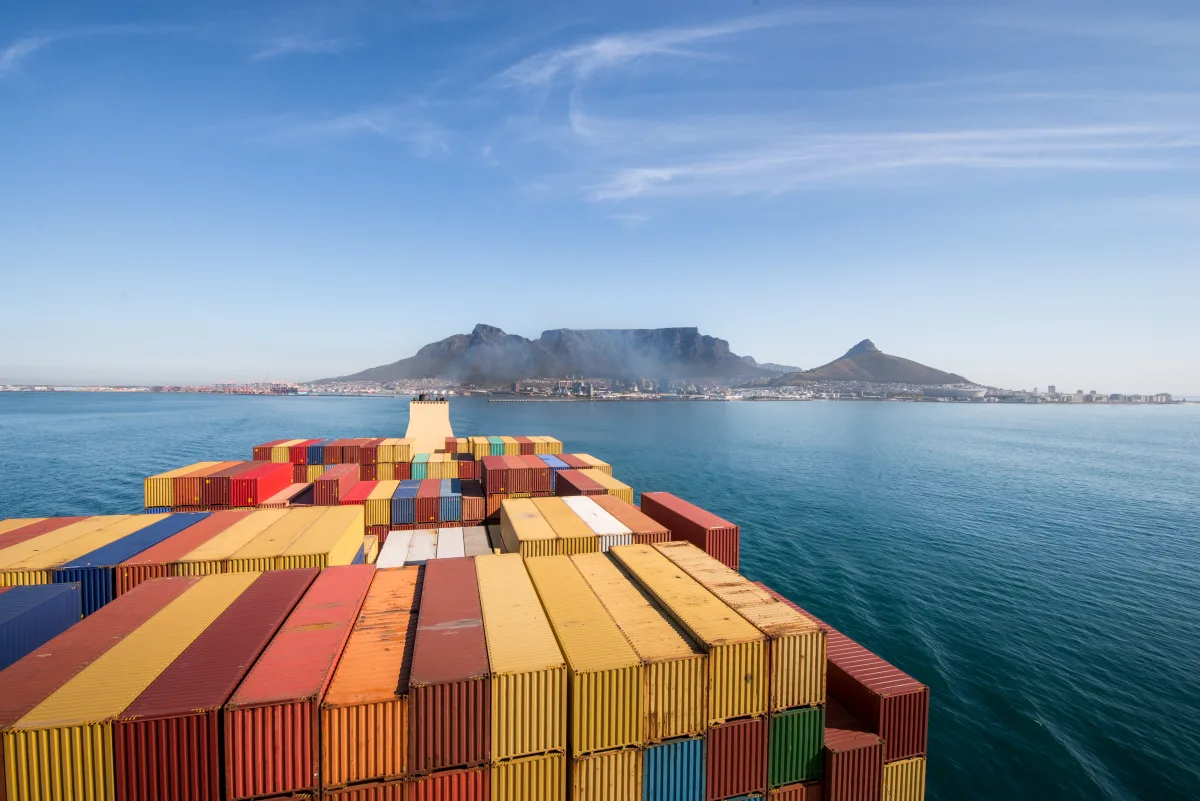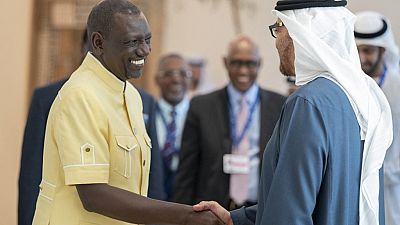Africa’s sustainable financing gap until 2030 is about USD 1.6 trillion. According to this report’s estimates, the continent needs additional financing of about USD 194 billion annually to achieve the Sustainable Development Goals by 2030. This annual sustainable financing gap is equivalent to 7% of Africa’s gross domestic product (GDP) and 34% of its investments in 2021. The annual gap equals less than 0.2% of the global and 10.5% of the African-held stock of financial assets.
African economies hold unique assets to close the continent’s sustainable financing gap:
-
Real GDP growth is estimated to return to the levels before COVID-19, at 3.7% in 2023, the second highest rate in the world after developing Asia (5%) and before Latin America and the Caribbean (1.6%). The growth is estimated at 4.9% in East Africa, 4.3% in Central Africa, 4% in North Africa, 3.8% in West Africa and 1.4% in Southern Africa.
-
The proportion of African youth completing an upper-secondary or tertiary education could reach 34% by 2040, up from 23% in 2020 and 18% in 2010. Africa has the world’s youngest population, with a median age of 19 years, compared to 30 for Latin America and the Caribbean, 31 for developing Asia and 42 for Europe.
-
Natural resources represent key assets for African economies. Natural capital accounts for 19% of Africa’s total wealth compared to 7% for Latin America and the Caribbean and 3% for developing Asia. From 2011 to 2020, African forests increased the global carbon stock by 11.6 million kilotons of CO2-equivalent net emissions, while carbon stocks in forests outside Africa declined by 13 million kilotons.
-
Africa’s domestic financial resources hold a large potential for sustainable development. Domestic government revenues amounted to USD 466 billion in 2021, equivalent to 17% of GDP, and assets held by African institutional investors amounted to USD 1.8 trillion in 2020, equivalent to 73% of GDP. During the COVID-19 pandemic in 2020-21, intra-Africa foreign direct investment was three times more resilient than foreign direct investment from outside the continent, boosting growth in renewable energies and in information and communications technology.
Despite this potential, global crises are affecting investment in Africa more than in other regions. The average inflation rate for the continent is projected to reach 15.5% in 2023 – the highest level in 27 years – with peaks above 15% in 11 African countries. As of February 2023, 8 African countries were in debt distress (out of 9 globally), and 13 were at a high risk of debt distress (out of 27 globally). Africa’s share of global greenfield foreign direct investment has been on a downward trend in recent years, dropping to 6% in 2020-21 (the lowest share in 17 years), while high-income countries in other parts of the world have recorded their highest share ever (61%), compared to 17% for developing Asia and 10% for Latin America and the Caribbean.
The cost of capital in Africa has risen above the levels in other world regions, pricing some African governments out of bond markets while thwarting investments in transformational sectors such as renewable energy. The spread on an average African Eurobond (a measure for the potential cost of sovereign borrowing) reached a 15-year high of about 10 percentage points in September 2022, eclipsing previous peaks. In 2021, the average cost of capital for energy projects was about seven times higher in Africa than in Europe and North America. While experienced investors attain higher average returns in Africa than in other world regions, the lack of reliable information and data is an important barrier to new investments.
To increase resilience to external shocks and improve investor confidence, African policy makers can work with international partners and African civil society to mobilise investments towards Agenda 2063 and sustainable development. The international community must follow through on commitments on debt restructuring and climate finance. African governments, development partners, the private sector and civil society must work closer together to improve Africa’s investment landscape. This report proposes three key policy priorities to accelerate sustainable investments on the continent:
-
More and better data will reduce transaction costs, improve sustainability assessments and increase investor confidence. In 2021, less than a third of African countries (30%) had a fully funded statistical plan, compared to almost half the countries in Latin America and the Caribbean (44%) and in developing Asia (47%). Improved macroeconomic data may help align risk perception with real risks. Partnerships with business associations or academic institutions can allow government agencies to share industry data that inform investors’ risk assessments at lower cost. African governments can also facilitate sustainability assessments through disclosure requirements and the provision of training and incentives to smaller firms with limited capacity.
-
Strengthening the capacity of Africa’s large development finance network will improve the allocation of sustainable finance. The 102 African development finance institutions (DFIs) can act as intermediaries between international finance and local projects, in line with national development agendas. The international community can channel more resources to well-managed DFIs and deliver on existing obligations, for instance, by increasing the allocation of climate adaptation finance. African governments and DFIs can also scale up the use of innovative de-risking and financing tools, including green, social, sustainability, and sustainability-linked bonds or local currency financing solutions emerging in many countries. Developing and interconnecting capital markets and stock exchanges will contribute to the growth of African firms.
-
Regional integration policies will improve and harmonise Africa’s investment landscape. Cross-border initiatives such as development corridors and digital infrastructures can reduce trade frictions and market fragmentation. At the same time, small and medium-sized enterprises need targeted support to seize investment opportunities along regional value chains. The African Continental Free Trade Area (AfCFTA) Investment Protocol aims to harmonise the African investment policy landscape but requires effective monitoring mechanisms and public-private alliances.
The five regional chapters of this report highlight how African regions can accelerate sustainable investments in strategic sectors. African regions can better leverage their unique assets to accelerate sustainable development and productive transformation. Regional case studies propose ways of operationalising the continental policy recommendations in specific sectors.
Source: OECD 2023
 afric-Invest
afric-Invest





